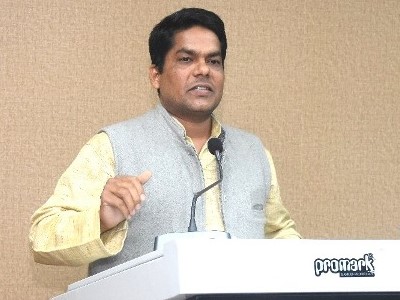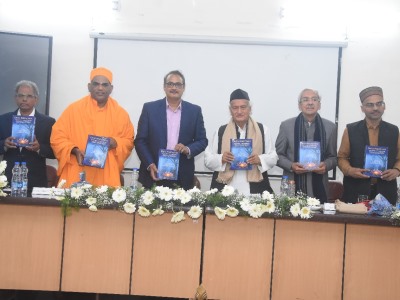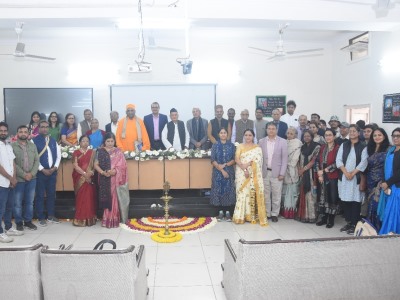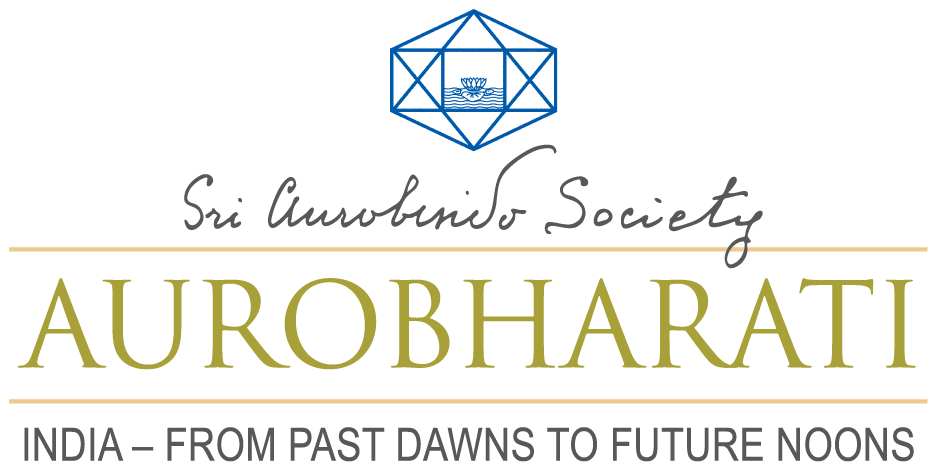Culture Embeded in Indian Philosophy
Location: University of Delhi, Delhi
Institute: AuroBharati
 A seminar dedicated to Professor S. R. Bhatt, focusing on the theme of ‘Culture Embeded in Indian Philosophy,’ was organized by the Department of Philosophy at the University of Delhi. This event was sponsored by the Indian Council of Philosophical Research in collaboration with the Santhigiri Research Foundation from 5th and 6th, 2025 at the University of Delhi.
A seminar dedicated to Professor S. R. Bhatt, focusing on the theme of ‘Culture Embeded in Indian Philosophy,’ was organized by the Department of Philosophy at the University of Delhi. This event was sponsored by the Indian Council of Philosophical Research in collaboration with the Santhigiri Research Foundation from 5th and 6th, 2025 at the University of Delhi.
Distinguished speakers, include Professor Balaganapathi Devarakonda, former Head of the Department of Philosophy at the University of Delhi; Professor Sachchidanand Mishra, Member Secretary of ICPR, New Delhi; Dr. Ram Madhav, former National General Secretary of the BJP; Swami Shri Gururethnam Gyana Tapaswi from Santhigiri Ashram, Shri Bhagat Singh Koshyari, former Governor of Maharashtra and former Chief Minister of Uttarakhand; Professor Jagmohan Singh Rajput, Padma Shri Awardee and former Director of NCERT; Swami Gururethnam Jnana Thapaswi, General Secretary of Santhigiri Ashram, Kerala; and Professor K. Gopinathan Pillai, Fellow at the Indian Institute of Advanced Study, Shimla, along with other eminent scholars from various academic institutions shared views on this topic.
 Dr Kishor Kumar Tripathy, Member Secretary, AuroBharati, Sri Aurobindo Society, Puducherry delivered a talk on “Indian philosophy and cultural identity, reflecting the importance of intangible cultural heritage and the enduring nature of tradition and continuity.” He spoke on the relationship between Indian philosophy and cultural identity constitutes a fundamental aspect of Indian civilization. These components establish a dynamic framework that is firmly rooted in ancient wisdom while simultaneously adapting to the demands of contemporary society. This synergistic connection between Indian philosophy and culture, characterized by both intangible traditions and innovative practices, fosters a distinctive cultural continuity that has persisted for millennia.
Dr Kishor Kumar Tripathy, Member Secretary, AuroBharati, Sri Aurobindo Society, Puducherry delivered a talk on “Indian philosophy and cultural identity, reflecting the importance of intangible cultural heritage and the enduring nature of tradition and continuity.” He spoke on the relationship between Indian philosophy and cultural identity constitutes a fundamental aspect of Indian civilization. These components establish a dynamic framework that is firmly rooted in ancient wisdom while simultaneously adapting to the demands of contemporary society. This synergistic connection between Indian philosophy and culture, characterized by both intangible traditions and innovative practices, fosters a distinctive cultural continuity that has persisted for millennia.
He emphasized on the intangible cultural heritage, Indian philosophy transcends mere theoretical discussion; it influences everyday life, moral decisions, and social behaviors. This philosophical underpinning is perpetuated through intangible heritage, which, in turn, informs cultural identity. Consequently, Indian traditions and customs not only survive but also thrive, remaining vibrant, pertinent, and flexible in an ever-evolving global landscape. The talk also explored the dynamic and evolving nature of ‘culture embedded in Indian philosophy,’ which adeptly balances continuity with transformation, safeguarding its core essence while welcoming future developments.
 Additionally, he examined the diverse dimensions of Indian philosophy, shaped by a confluence of indigenous traditions, religious practices, traditional knowledge systems, oral histories, and social customs. Key themes of Indian philosophy and the ongoing cultural narrative, including oral traditions, religious beliefs, and traditional skills—particularly those rooted in continuity—was the significant focal points of the discussion which were presented through significant references from the scriptures.
Additionally, he examined the diverse dimensions of Indian philosophy, shaped by a confluence of indigenous traditions, religious practices, traditional knowledge systems, oral histories, and social customs. Key themes of Indian philosophy and the ongoing cultural narrative, including oral traditions, religious beliefs, and traditional skills—particularly those rooted in continuity—was the significant focal points of the discussion which were presented through significant references from the scriptures.



